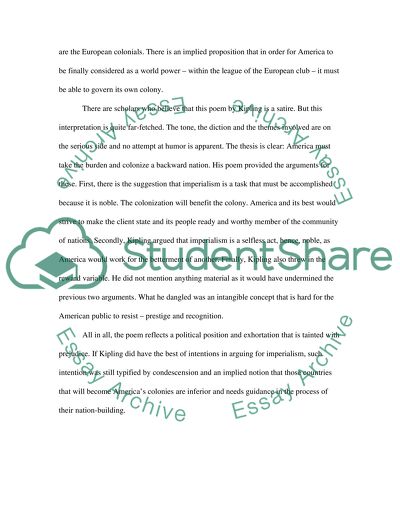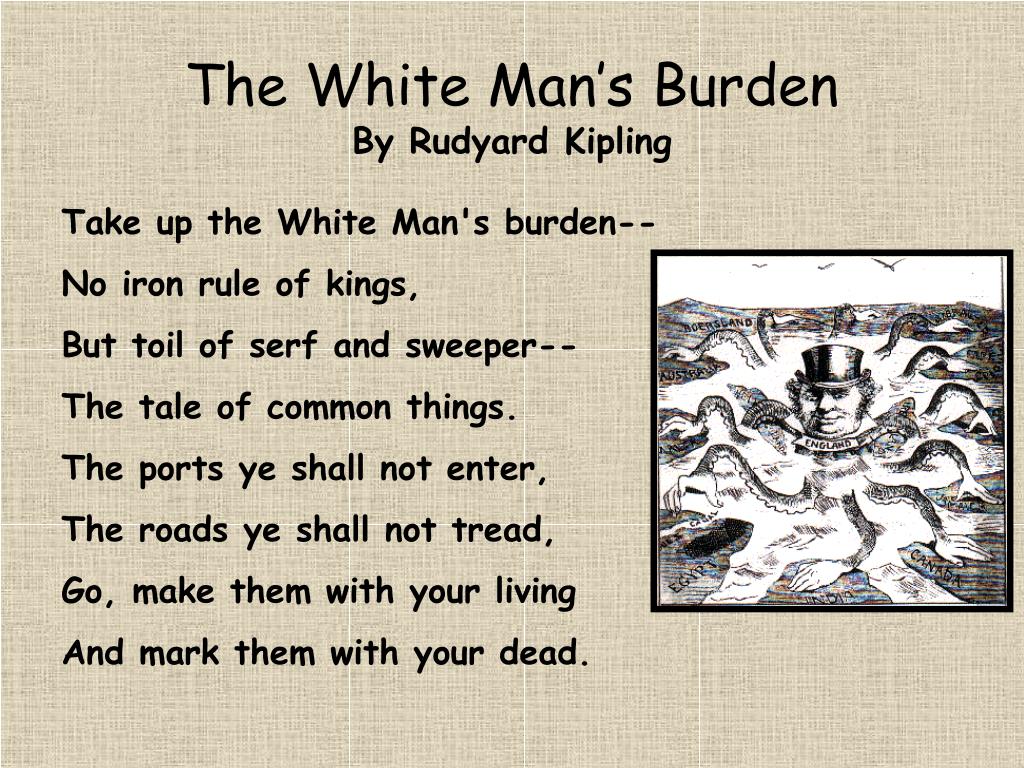Reference



Reference



OpenAI's Answer
Mark Twain's response to Rudyard Kipling's poem "The White Man's Burden" is a critical one, challenging the imperialistic and moralistic view presented by Kipling. Kipling's poem, published in 1899, was meant to justify and promote imperialism by depicting it as the Western world's duty to civilize and educate non-European societies, specifically during the U.S. take over of the Philippines following the Spanish-American War.
Twain, known for his critical views on imperialism, responds to this sentiment by satirizing and criticizing the notion that Western powers were benevolent in their colonial endeavors. He believed that imperialism was fundamentally oppressive and exploitative, rather than enlightening or charitable. Twain's response reflects a view that contradicts the glorification of imperialism by Kipling, suggesting instead that it involved brutal domination and subjugation of other peoples under the guise of a noble "burden."
For more information, you can refer to this discussion on eNotes which explains Twain's perspective.
Follow Up
Related
CHAPTER 2 - Literature Review 2.1. Introduction This chapter undertakes a review of literature to
How did the financial burden of renting the County Ground affect Southampton F.C.?
How do content-neutral restrictions impact freedom of speech in public forums?
What are the main areas of focus in Anna María Nápoles' research?